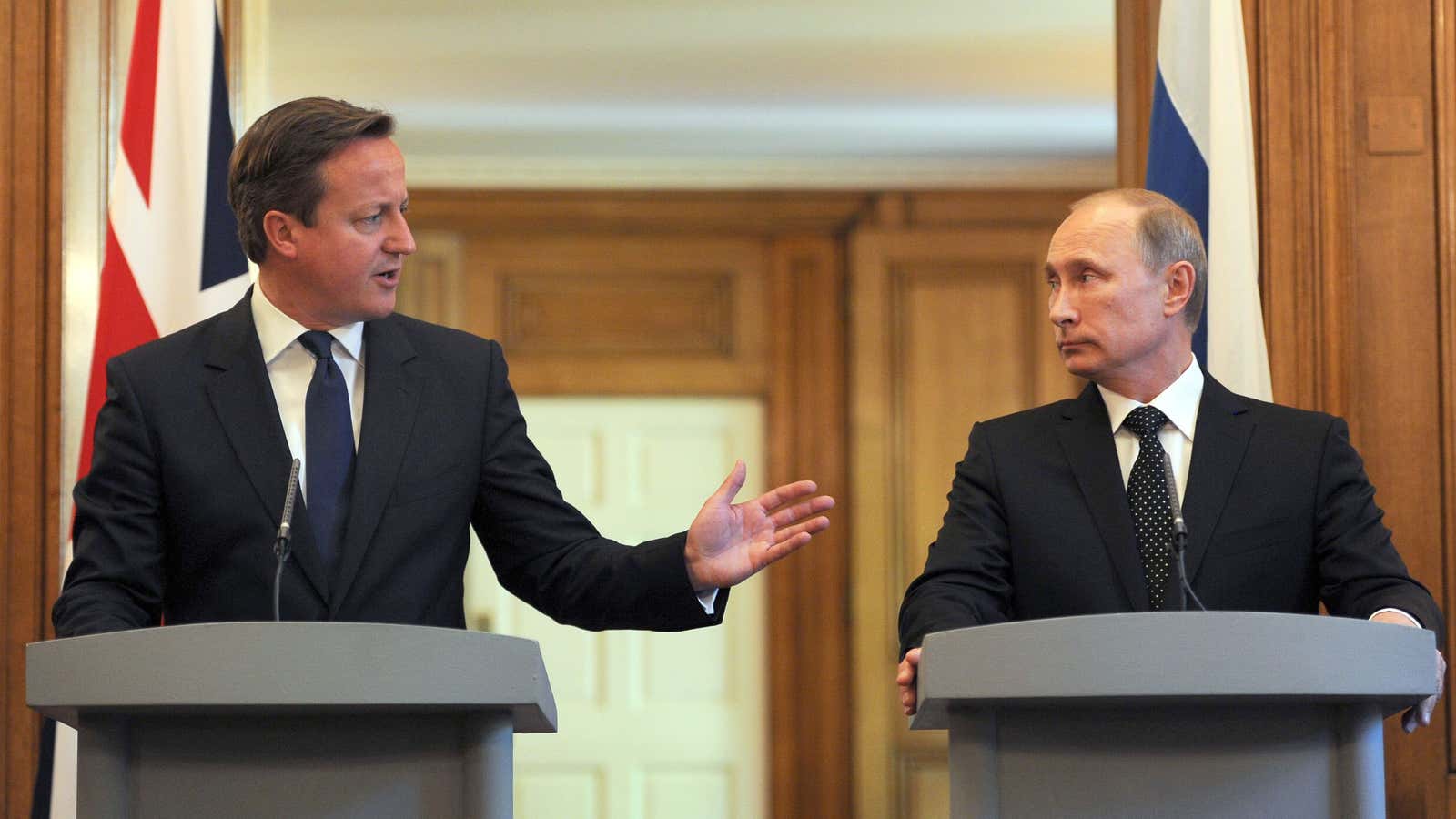Ever since Moscow faced its first EU sanctions after annexing Crimea in 2014, Russian president Vladimir Putin has faced one all-but-immovable object on the continent—the United Kingdom. For 27 months, as Putin has attempted to erode European unity and get at least some of the sanctions lifted, UK prime minister David Cameron has been his always impossible opponent, helping to cajole the rest of the EU’s 27 members to stay in line on the sanctions.
With Britain having voted June 23 to leave the EU, Putin will not be entirely among non-judgmental friends on European matters. He still faces a pro-sanctions phalanx in German chancellor Angela Merkel, French president François Hollande, and Polish prime minister Beata Szydło, said Kennan Institute director Matthew Rojansky. The three politicians were among those who on June 21 voted to extend the sanctions through Jan. 2017.
But the EU will be absent its main Russia skeptic. “Putin’s modus operandi is always to exploit openings and situations and press Russia’s interest,” said Fiona Hill, a Russia expert at the Brookings Institution and co-author of Mr. Putin: Operative in the Kremlin. “So there might be more opportunities there for Russia to block things it doesn’t like, and push agendas, like preserving its dominance of European energy markets.”
Added Eurasia Group’s Charles Lichfield, “The UK was among the most hawkish in the EU on the maintenance of the sanctions. Absent the UK, it will be a lot harder for east and central Europe to hold the line.”
One main crack in the European armor likely to be tested by Putin will be the very panic over Brexit: How important is Crimea, really, against an arguably more direct threat to the 65-year-long European experiment? Jeff Mankoff, an analyst with the Center on Strategic and International Studies, said Brexit is now likely to loom much larger in EU eyes than sanctions against Russia for its Crimean land grab, which until now has seemed the union’s most critical issue.
“Presumably more and more voices will be questioning the point of arguing over sanctions at a moment of existential crisis for the entire European edifice,” Mankoff said.




